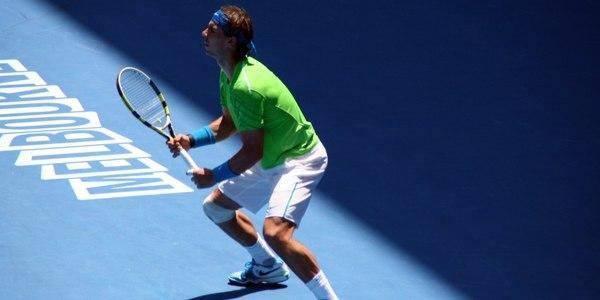
Every athlete makes mistakes; however, not all athletes rebound from them.
How do you deal with mistakes during a competition? Do you quickly refocus on your game, or do you dwell on mistakes for too long?
Why focusing on mistakes interferes with athletic performance:
- Fearful of making mistakes can paralyze athletes or cause athletes to be hesitant in competitions and lead to the same mistake you seek to avoid.
- Ruminating about mistakes fosters negative emotions, lowers confidence, and interferes with decision making.
- Dwelling on one mistake mentally takes you out of the game. You are no longer fully immersed in the present moment.
When you fail to refocus after a mistake, you give your opponents a significant mental edge.
How to counter mistakes:
- Understand mistakes are a part of the game – Every athlete makes mistakes from time to time. There is no perfect performance or perfect athlete. When you accept this fact, you will not be so hard on yourself after making a mistake in a competition. In addition, you will be more willing to take risks during a competition.
- Let go – When you focus forward, you lessen the impact of mistakes. Letting go of mistakes keeps your confidence intact and prevents negative emotions from taking over your game.
- Refocus on the next play – The goal is to minimize the amount of time between making a mistake and immersing yourself back in the game. The mental skill of refocusing is the hallmark of elite athletes.
In the AFC Championship Game, Kansas City Chiefs quarterback Patrick Mahomes fumbled the ball in the third quarter, giving the Cincinnati Bengals the ball on their 45-yard line. The winner of this game would advance to the Super Bowl.
Instead of panicking, Mahomes remained poised and finished the game with 326 passing yards and two touchdowns, leading his team to a 23-20 victory.
After the victory, Mahomes talked about his mindset after the fumble.
MAHOMES: “I think when you’ve been in some big games now a couple of years in a row, you’ve learned from your mistakes, and I felt like the year before, I let one mistake kind of compound into two, three, or whatever it was. Whereas this game, this last one, instead of worrying about, ‘Man, I made a huge mistake when we probably could’ve had a good chance of giving ourselves a big lead,’ (the mindset was) let’s not magnify it. Let’s move on to the next play.”
The mistake itself is not the problem. The issue lies in the inability to react with composure after the mistake.
Since focusing is a skill, you can learn to become proficient in your ability to refocus. When you learn to refocus quickly, you will feel confident you can rebound after a mistake in stressful circumstances.
Acknowledge the mistake without self-judgment. “Instead of saying, “I’m so stupid for throwing an interception” tell yourself, “Look for the open receiver or scan the field for receivers in single coverage.”
Remind yourself that the mistake is in the past and you can’t change it or get it back–you can only move on to the next play.
Related Sports Psychology Articles
- The Mindset to Perform at a Higher Level
- Having Fun While Performing at Your Best
- The Importance of Mental Toughness
*Subscribe to The Sports Psychology Podcast on iTunes
*Subscribe to The Sports Psychology Podcast on Spotify
Download a free sports psychology report to improve your mental game!
Learn more about our one-on-one mental game coaching.

The Relaxed Athlete
You can possess all the physical talent in the world, the best equipment money can buy, and train harder or longer than anyone else in your sport or on your team, but if self-doubt enters your mind prior to competition, you simply will not realize your true potential in sports.
The Relaxed Athlete” audio and workbook program teaches you mental strategies to develop a focused and confident pregame routine for a poised and relaxed mindset. Learn how to get your mind right by overcoming pregame anxiety and worry.
